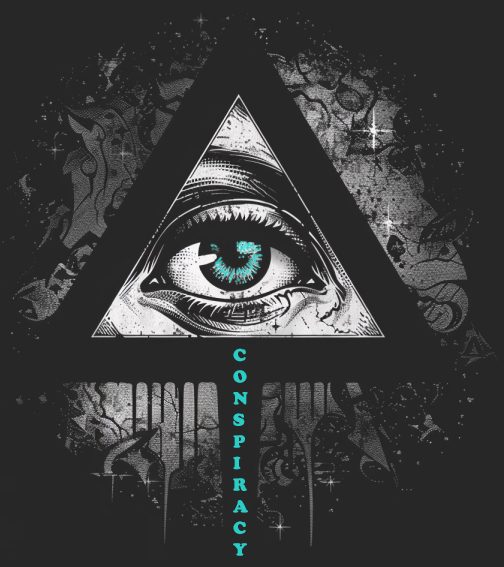The tragic events of September 11, 2001, forever altered the course of history and left an indelible mark on the collective consciousness of the American people. In the aftermath of the 9/11 attacks, conspiracy theories emerged, challenging the official narrative and suggesting the involvement of the U.S. government in orchestrating or allowing the events to unfold. This essay delves into the key conspiracy theories surrounding the 9/11 attacks, critically examining their claims and evaluating the evidence to provide a nuanced perspective on this complex and sensitive topic.
The Official Narrative: Terrorist Attacks
On September 11, 2001, four commercial airliners were hijacked by 19 terrorists associated with the extremist group al-Qaeda. Two of the planes, American Airlines Flight 11 and United Airlines Flight 175, crashed into the North and South Towers of the World Trade Center in New York City, causing their subsequent collapse. Another plane, American Airlines Flight 77, struck the Pentagon in Arlington, Virginia, while United Airlines Flight 93 crashed into a field in Pennsylvania after passengers attempted to regain control from the hijackers.
The 9/11 Commission Report, released in 2004, concluded that the attacks were carried out by al-Qaeda and were a result of failures in U.S. intelligence and security systems. The report outlined a detailed timeline of the events leading up to the attacks and the subsequent response by the U.S. government.
Conspiracy Theories: Skepticism and Alternative Narratives
Despite the comprehensive investigation conducted by the 9/11 Commission, conspiracy theories challenging the official narrative gained traction, leading to a proliferation of alternative explanations for the events of 9/11. One prevalent theory suggests that the U.S. government, or elements within it, had prior knowledge of the attacks and allowed them to happen, or even actively orchestrated them as a false flag operation to justify military interventions in the Middle East.
Proponents of the controlled demolition theory argue that the collapse of the Twin Towers was not solely due to the impact of the hijacked planes but involved the deliberate use of explosives. They point to the rapid and symmetrical collapse of the buildings, reminiscent of controlled demolitions, as evidence supporting their claims. Additionally, some conspiracy theorists question the ability of the hijackers to navigate and execute the complex maneuvers required to strike the Pentagon and argue for the presence of a missile instead of Flight 77.
Claims of insider trading in the days leading up to 9/11, suggesting foreknowledge of the attacks, have also fueled conspiracy theories. Some argue that a small group of individuals with ties to the government profited from trading in airline and insurance stocks, implying complicity or prior knowledge of the impending catastrophe.
Critical Analysis: Assessing the Evidence
While conspiracy theories may offer alternative narratives, a careful examination of the evidence reveals significant shortcomings and contradictions. The controlled demolition theory faces challenges in explaining the absence of any substantial evidence of explosive devices or residue in the debris of the Twin Towers. The collapse of the buildings can be more comprehensively attributed to the combined impact of the hijacked planes and subsequent fires, as detailed in the 9/11 Commission Report.
Regarding the Pentagon attack, extensive investigations and eyewitness accounts support the conclusion that Flight 77, piloted by hijackers, struck the building. The physical evidence, including aircraft debris, personal effects of passengers, and the flight data recorder, aligns with the official narrative of the event.
The insider trading claims have been extensively scrutinized, and subsequent investigations found no conclusive evidence linking the trades to individuals with inside knowledge of the attacks. In many instances, the patterns identified were attributed to coincidences, fluctuations in market conditions, or unrelated financial decisions.
While skepticism and questioning of official narratives are inherent to a healthy democracy, it is essential to differentiate between genuine inquiry and unfounded conspiracy theories. The 9/11 Commission Report underwent rigorous review and scrutiny, involving experts, investigators, and public hearings. The lack of credible evidence supporting the alternative theories underscores the robustness of the official investigation and the comprehensive nature of its findings.
The Consequences of Conspiracy Theories
The proliferation of 9/11 conspiracy theories has far-reaching consequences that extend beyond the events of that fateful day. By fostering mistrust in official institutions, these theories contribute to a broader erosion of public confidence in government and the media. The persistence of these alternative narratives challenges the collective memory of the nation and impedes the healing process for those directly affected by the 9/11 attacks.
Furthermore, the focus on conspiracy theories may divert attention and resources away from addressing legitimate concerns related to intelligence failures, national security, and responses to terrorist threats. It is crucial to engage in constructive conversations about the lessons learned from 9/11 and the ongoing efforts to enhance security, prevent terrorism, and safeguard democratic values.
Conclusion: Navigating the Shadows of History
The events of September 11, 2001, remain a defining moment in modern history, shaping the trajectory of international relations, security policies, and public discourse. While conspiracy theories challenging the official narrative persist, a critical analysis of the evidence reveals the robustness of the investigations conducted by the 9/11 Commission.
In navigating the shadows of history, it is imperative to acknowledge the tragic reality of the 9/11 attacks, honor the memory of the lives lost, and learn from the lessons of that day. Engaging in open and informed discussions about the complexities of terrorism, intelligence, and security can contribute to a more resilient and vigilant society, one that is better equipped to address the challenges of an ever-changing world.

 Cart is empty
Cart is empty 
Add a Comment